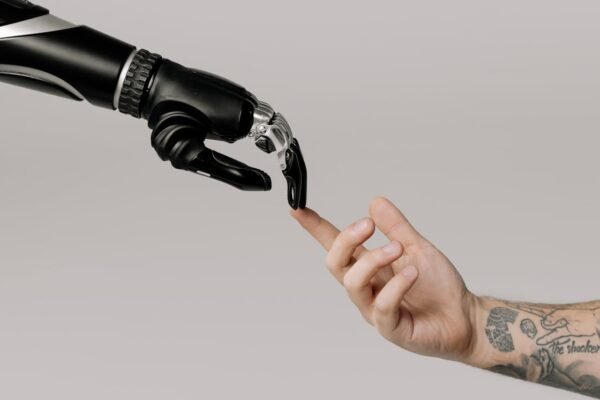The Changing Face of Hiring
Not long ago, resumes were judged primarily by hard facts—degrees, certifications, years of experience, technical know-how. But the world of work is evolving, and so are the expectations of employers. Today, soft skills have taken center stage.
In an era where automation handles repetitive tasks, and artificial intelligence can outpace humans in technical precision, it’s the human qualities—empathy, communication, adaptability—that are becoming more valuable than ever.
But what exactly are soft skills? Why do they matter so much in 2025 and beyond? And how can you develop them to stand out in a competitive job market?
This article explores all of that—broken down clearly and in detail.
What Are Soft Skills?
Soft skills refer to personal attributes, traits, and interpersonal abilities that influence how we interact with others and handle work situations. Unlike hard skills, which are measurable and job-specific (like accounting, coding, or welding), soft skills are universal and harder to quantify.
These include:
- Communication
- Teamwork
- Leadership
- Problem-solving
- Time management
- Emotional intelligence
- Adaptability
- Conflict resolution
- Critical thinking
- Work ethic
In simpler terms, soft skills define how you work, not just what you can do.
Soft Skills vs. Hard Skills: Understanding the Difference
It’s important to clarify the contrast:
| Hard Skills | Soft Skills |
|---|---|
| Learned through education/training | Developed through experience and habit |
| Job-specific (e.g., JavaScript) | Transferable across all industries |
| Measurable and testable | Observed over time |
| Usually listed on resumes easily | Demonstrated through behavior |
Think of hard skills as the tools in your toolbox, and soft skills as how you use them to solve a problem. A brilliant coder who can’t communicate deadlines, or a skilled designer who can’t handle feedback, will struggle in a collaborative environment.
Why Employers Are Prioritizing Soft Skills in 2025
1. Technology Can Replace Tasks, Not People
Automation and AI are changing the job landscape. Many technical tasks once handled by humans are now being done faster by machines. But no AI can replace empathy, creativity, or emotional intelligence—at least not in a meaningful, human way.
Soft skills are the differentiating factor. They determine who can manage teams, build trust, navigate change, and lead in uncertain times.
2. Remote and Hybrid Work Demands Better Communication
The shift to remote and hybrid work models has made clear communication and self-motivation more important than ever. When coworkers aren’t sitting next to each other, the ability to convey ideas clearly, give constructive feedback, and resolve misunderstandings remotely is vital.
Employers are now seeking individuals who can collaborate asynchronously, manage their own schedules, and keep projects moving without constant supervision.
3. Culture Fit Matters
Beyond qualifications, employers want people who fit well within the team. That doesn’t mean being exactly the same as others, but it does mean being someone who can contribute positively, resolve conflicts maturely, and foster a healthy work environment.
Soft skills like adaptability, open-mindedness, and respect for diversity play a major role in shaping workplace culture.
4. Leadership and Growth Potential
Companies are always looking for people they can promote. And leadership isn’t just about knowing the job—it’s about inspiring others, handling pressure, and navigating ambiguity.
Even entry-level employees with strong soft skills are seen as future leaders. In fact, leadership training programs often start by evaluating one’s soft skill foundation.
Key Soft Skills Employers Value Most Today
Let’s dive deeper into the soft skills that are most in-demand—and why they matter:
Communication
Whether written or spoken, clear communication prevents misunderstandings and builds stronger teams. It’s not just about talking—it’s about listening actively, understanding the audience, and expressing ideas clearly.
Teamwork
Almost no job exists in a vacuum. Working well with others—sharing credit, resolving differences, offering support—is essential in virtually every workplace.
Problem-Solving
In fast-moving industries, challenges are constant. Employers want people who can analyze issues calmly, weigh solutions, and make smart decisions without being micromanaged.
Adaptability
Industries shift, roles evolve, technologies emerge. Being flexible and open to learning is no longer optional—it’s expected.
Emotional Intelligence (EQ)
This is the ability to understand and manage your own emotions, and those of others. High EQ leads to better collaboration, conflict resolution, and leadership.
Time Management
In remote work settings especially, managing your own time effectively is crucial. Meeting deadlines without being reminded shows maturity and ownership.
How to Showcase Soft Skills to Employers
Unlike hard skills, soft skills don’t come with certificates. So how do you demonstrate them effectively?
1. Through Your Resume & Cover Letter
Use real examples. Instead of just listing “teamwork,” write:
“Collaborated with a cross-functional team to redesign onboarding workflow, reducing onboarding time by 30%.”
This shows the soft skill in action.
2. In Job Interviews
Be ready with stories. When asked about challenges or successes, focus not just on the result but also on how you worked with others, handled feedback, or adapted to change.
3. Through Your Online Presence
LinkedIn posts, personal blogs, or even thoughtful comments can reflect soft skills like communication, emotional intelligence, and leadership potential.
Can Soft Skills Be Learned or Improved?
Absolutely. While some people may naturally be more empathetic or organized, soft skills are developed through intention and effort.
Ways to improve:
- Practice active listening in daily conversations
- Join group projects or volunteer to improve teamwork and leadership
- Take online courses on communication, EQ, or productivity
- Seek feedback from mentors, managers, or peers
- Read widely, especially non-fiction books on psychology, communication, and leadership
Like going to the gym for physical fitness, soft skill development takes consistency. But the returns—in your career and relationships—are worth it.
Why Soft Skills Are Future-Proof
Industries rise and fall. New technologies emerge constantly. But the need for human connection, critical thinking, and leadership doesn’t change. That’s why soft skills are considered future-proof.
In fact, in a 2025 hiring trends survey, more than 90% of HR professionals said they would choose a candidate with strong soft skills and average hard skills over one with strong hard skills and poor soft skills.
It’s no longer just about what you know—it’s about how you apply it, how you work with others, and how you show up when things get tough.
Conclusion: Skills That Make You Irreplaceable
In a world increasingly driven by machines, it’s our human abilities—to empathize, communicate, solve problems creatively—that make us irreplaceable. Employers know this. That’s why soft skills are no longer a bonus; they’re a necessity.
So whether you’re a student preparing for your first job, a professional looking to switch careers, or someone returning to the workforce, invest in your soft skills.
Because no matter how the job market evolves, your ability to connect, adapt, and lead will always set you apart.





